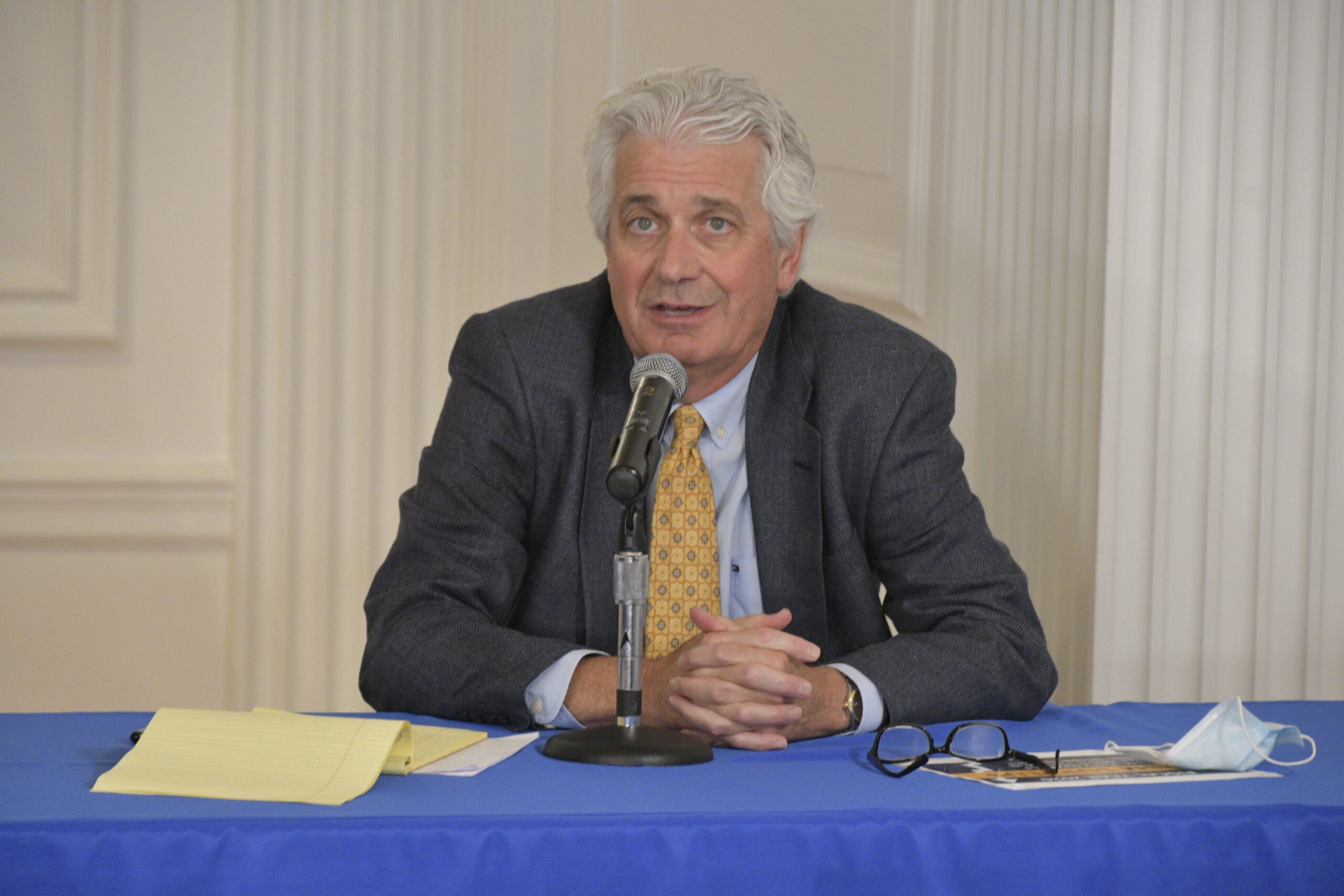MORGANTOWN — In early April, as the COVID-19 pandemic was gaining momentum, West Virginia’s revenue experts expected the state to be on financial life support by this time of the year, Revenue Secretary Dave Hardy said Monday.
But it didn’t turn out that way, he said. “We’re healthier today than we were a year ago. We’re hoping as we move into August things will continue on the positive route that they’re going.”
Hardy and Gov. Jim Justice presented an Economic Pandemic Impact Review to the press Monday morning.
On April 3, Hardy said, they presented a grim economic outlook to the governor. The U.S, government moved Tax Day from April 15 to June 15. Deputy Revenue Secretary Mark Muchow projected that only 20% of state taxpayers would pay their taxes before the revised date. That meant a $300 million budget hole for the final quarter of Fiscal Year 2020, which ended June 30.
On top of that, Hardy said, they projected a drop in consumer sales of $69 million, lost income tax withholding due to pandemic-related layoffs of $85 million and severance tax declines of $39 million – for a total hole of about $500 million. Cash would run dry May 10, well before the end of the fiscal year.
They began meeting with Justice five days a week, and sometime weekends, Hardy said, to watch the numbers and make plans. The possible measures included raiding the Rainy Dy Fund, slowing income tax refunds, laying off state employees.

But good things happened. The federal government raised the Medicaid match, which allowed the state to borrow from the Medicaid surplus funds, to the tune of $100 million. Consumer sales and severance taxes came in above estimates and a full 40% of taxpayers paid their taxes early.
So on June 30, FY 2020 ended not with a deep hole but a $28 million surplus, Hardy said. Half of that goes to the Rainy Day Fund; $6 million will go toward the Milton flood wall; $8 million is left for the Legislature to appropriate.
“It was borderline miraculous,” Hardy said.
And the news got better moving into July. About $200 million of deferred income tax revenue would become available And “consumer sales tax in July jut below off the roof,” up 11.6% compared to July 2019, he said.
So they entered the first quarter of FY 2021 with a $244 million “engineered surplus,” Hardy said. That’s almost five times higher than FY 20’s opening surplus of $55 million.
“It has taken a tremendous effort,” he said, combining Justice’s optimism with wise capitalizing on federal COVID assistance.
Asked if there are plans for the $244 million, Justice said, “They’re an insurance policy, that’s all there is to it.” While he hopes the national economy will pick up, state revenues through Dec. 31 could still dip below estimates, so that money offers some padding,
Justice and Hardy both dismissed projections by the National Conference of State Governments that continued economic declines plus increased Medicaid expenses could lead to a $646 million state shortfall. That state is in good shape on Medicaid, Justice said, and the economy has some diversity, through high tech, manufacturing and tourism,
Justice said it’s prudent to be prepared for the worst, but with a fourth federal stimulus package coming – the Senate bill is called HEALS – we may see the best year ever.
“If we believe this is Armageddon,” he said, “why are we here? We should just go be with our families.”
Tweet David Beard@dbeardtdp Email dbeard@dominionpost.com




